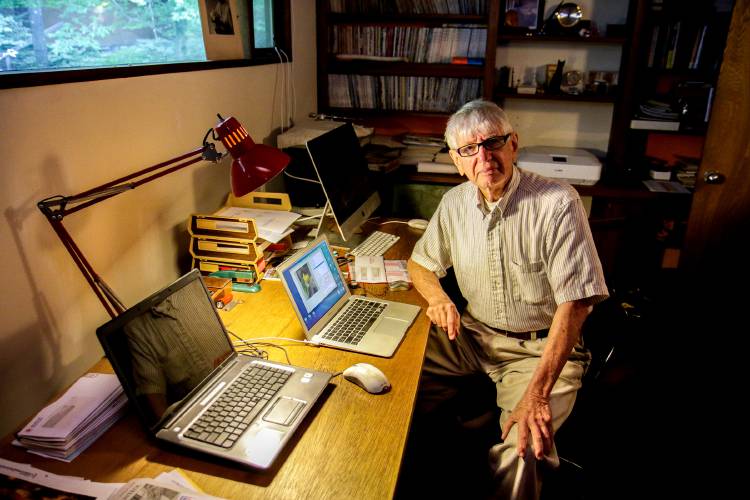Thomas Kurtz, the Dartmouth professor who co-created BASIC and DTSS with John Kemeny, helping launch the whole idea of computing and networks, has died. He was 96. Dartmouth News has a long remembrance with some historic photos.
I interviewed Kurtz via email in 2018 as part of my successful push to get a highway historical marker honoring the creation of BASIC. The post is here. Here are the relevant Kurtz parts:
Kurtz said that creating BASIC (Beginner’s All-purpose Symbolic Instruction Code) and a system by which many people could remotely use a computer at the same time went hand in hand, both driven by the idea of helping the masses use computers.
“Of course, by ‘masses’ we meant ‘Dartmouth students’; in particular those not majoring in the sciences. (The graduates who in later years became CEOs, etc., normally majored in the Social Sciences or Humanities.) It turned out that we also meant high school students,” Kurtz wrote, parentheses included.
“By 1963-64 we both had had about 10-15 years’ experience with computing and with the ‘crude’ programming languages available in those early days. Another point: Around 1959 we (i.e., Dartmouth) obtained its first real computer, a Royal McBee (later General Precision) LGP-30. Its use by students convinced us to require all students in the second-term math course to write several simple (5- or 10-line) computer programs in a simple language that we called SCALP, which was a subset of the Algol programming language around at that time.
“By 1963 we convinced ourselves and the management of Dartmouth that we needed a bigger machine. And, as it turned out, the concept of time-sharing as a more efficient way to access a computer (in terms of people-time, if not in computer-time) was just coming into being at MIT and Carnegie-Mellon.”
“Kemeny wrote the first BASIC compiler (yes, it was a compiler, not an interpreter!). A team of brilliant Dartmouth undergraduate students wrote the DTSS time-sharing operating system. I was the director of the computer center.”
The result was Dartmouth Time-Sharing System, which allowed multiple people to use the same computer from different locations at once. It and BASIC were rolled out in 1964 and marked a real change in computing – and also put Dartmouth on the global map for the new and exciting world of software and computers.


 Return to the Concord Monitor
Return to the Concord Monitor